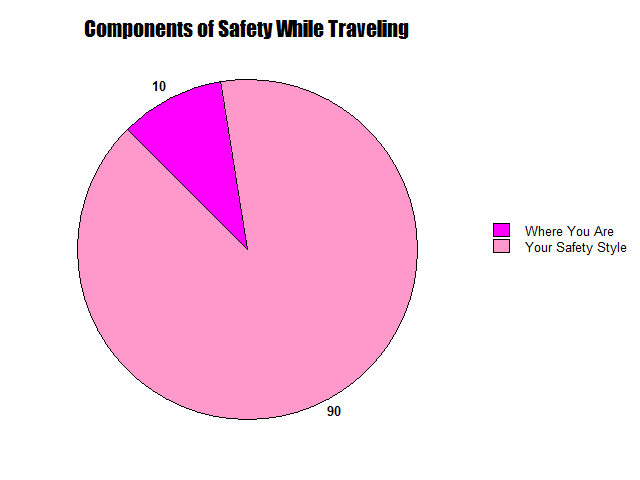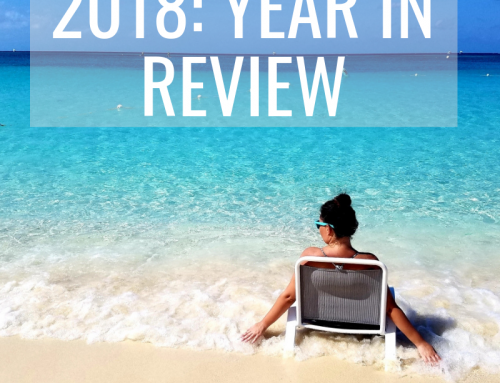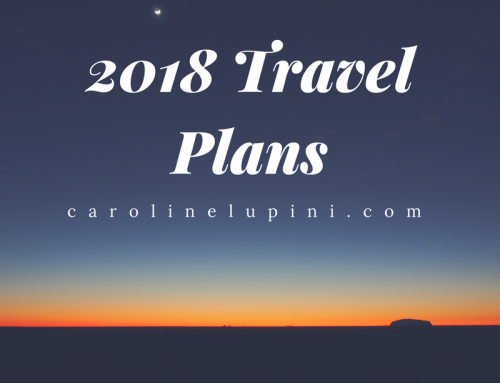The first thing most people have said to me when they hear I’ll be traveling to Egypt in about two weeks is “Do you feel safe going there?” or something along those lines. Actually, it’s more often a statement that “Egypt isn’t safe” than a question.
This post isn’t so much about Egypt, its about travel safety in general.
I believe you can travel safely almost anywhere in the world.
Many people are going to read that and call me naive or an idealist, and then probably blame it on my age… I’m 23 for the record.
But let me make my case…
Only a small part of travel safety is about where you are. The much more important part of travel safety is your safety style.
What’s a Travel Safety Style?
There are two main parts to your safety style. The first is how much you research the place you are traveling, and how you go about that research. The second is acting on the knowledge gained from your research both before departure and while you are traveling.
Let’s talk about trip research…
Everyone I know who has been on a trip has spent some amount of time researching the things they want to see and do while they are traveling. While this is an important bit of research to do for the purposes of enjoying your trip, it often supersedes other research that may be more important such as the political situation in a country, the good vs. bad neighborhoods in a city, etc.
Unfortunately, most of the “research” that forms our opinion of other countries and cultures comes directly from mainstream media for most Americans, and I am very much of the opinion that firsthand accounts from people who live in a country or other travelers with similar travel styles who have recently traveled to that country are much better resources to use. I want to know what’s going on from someone who doesn’t have an agenda. I am fortunate to have a large network of friends and acquaintances that travel frequently, so it is likely that if I am traveling somewhere new, I can reach out to someone I know for their opinion, and in all likelihood, I have a few different people I can reach out to. Checking the US Travel Alerts and Warnings is usually up there on my list of things to do, too, though not necessarily a deal breaker in terms of traveling to a country on this list.
If I don’t feel content with the information I have learned from talking to people, I turn to the internet. I do read up on recent news, despite preferring the opinions of people I know. I connect with people on Twitter who live in the place I am traveling or who have recently traveled through there. I post specific questions on Flyertalk or a similar forum. Occasionally I will even email a local hotel to ask specific questions, though I realize that they have agendas of their own.
In terms of how much research you should do? Well, more is usually better. The more you know, the better prepared you are to act and react.
What to do with all this new found knowledge…
Well, there are two parts to this. What do you do before you leave? And then what do you do while you’re gone.
Before you leave.
Generally, the most important safety related things that you need to deal with before you leave are 1. clothing 2. medication and 3. immediate post-arrival plans.
- Pack appropriate clothes. Not only for the weather, but also for the respect of the culture and the sites you are visiting, is an important safety (and comfort) issue that is best taken care of before departure. This requires a bit of research on what locals wear in the country and what you can get away with as a tourist. In many countries in Europe, for example, this is probably not much to worry about, but in other regions of the world more thought should be given.
- Bring OTC medication and get vaccinated, if needed. You want to return home as healthy as you were when you left, and you probably don’t want to spent your trip sick either, so making sure you have a basic first aid kit and any region-specific medications/vaccines is a must. You can find out a lot of general information, including vaccination recommendations, about traveling to other countries from the US Department of State.
- Know where you’re going when you land. The moment you get off a place into a new country is one of the most important, safety-wise. At this point in time you are having your first experience with the new country, and it is probably in a semi-hectic environment. You should know where you are going, and you should know how much it costs to get there. This probably entails booking accommodation, and looking at directions from the airport, possibly knowing how much a cab costs so you don’t get scammed, and maybe having some maps of the city saved on your phone (or old school paper maps work too).
While you are traveling.
A few little things can help you stay so much safer while you are traveling…
- Pay attention to your surroundings. This is something that my mom tells me all the time, and I think that it is something that people are often prone not to do, especially when we feel comfortable with our surroundings. Don’t fall into this trap! Stay alert and pay attention to your surroundings. In the case that something is happening, this will allow you to have more time to react.
- Trust your gut. If something seems fishy – it probably is. Get yourself away from the situation as quickly as you can, without further compromising your safety or other’s.
- Register with STEP, the Smart Traveler Enrollment Program. Admittedly, this is something that I’m not always great at doing, but there is no reason not to do it. The Embassy will keep you up to date with safety conditions in the country you are traveling in, it allows the US Embassy to contact you in case of an emergency, and also allows family and friends to contact you in case of an emergency. There’s honestly no reason not to do this, it only takes a few minutes.
- Stay on top of current events. Oh, you thought your research was over because you already left for your trip? It’s not. Keeping up with any major changes will help ensure your safety. STEP should notify you about anything major, but best practice is to keep up with it on your own too.
- Keep your curiosity in check. This is another one that I battle with from time to time… but we humans are, by nature, curious. Use your knowledge (from your research!) to make an informed decision whether or not to satisfy your curiosity.
Please Travel Safely…
Now, even if you do all of these things, it doesn’t mean you’re going to be perfectly safe. But, honestly, when are you? All you can do is prepare yourself and take precautions for the additional risk of being in an unknown environment. Of course, by not traveling you can also reduce that risk. But for me? I’m a traveler… and I can’t stop.
“The wish to travel seems to me characteristically human: the desire to move, to satisfy your curiosity or ease your fears, to change the circumstances of your life, to be a stranger, to make a friend, to experience an exotic landscape, to risk the unknown.” – Paul Theroux





![Russia – Moscow, St. Petersburg, and Velicky Novgorod [VIDEO]](https://carolinelupini.com/wp-content/uploads/2015/03/russia-500x383.jpg)
![The Dead Sea – Don’t Miss It! [VIDEO]](https://carolinelupini.com/wp-content/uploads/2018/02/Screen-Shot-2018-03-11-at-1.44.10-PM-500x383.png)


In other words: If everyone else thinks Egypt is unsafe, you’ll have the pyramids all to yourself 😉
Great tips, especially the one regarding STEP – I completely forgot that was a thing.
One piece of advice I really like is Rapid Travel Chai’s “3 Ds” of staying safe while traveling – don’t be drunk, drugged, or debauched, especially in a place where you don’t know the language.
Also, your infographic is hilarious.
Exactly! No tourists in my photos!
Rapid Travel Chai has some great advice as well, and I appreciate his drive to explore off-the-beaten-track places.
Thanks for the comment 🙂
Exactly. Know about where you are going and try to fit in with the local customs, especially the clothes part. I’ve met women traveling who felt it appropriate to lay out in a sports bra and skimpy shorts in a country where you see women completely covered. Not cool. In my travels, I have rarely encountered situations places where I’ve felt unsafe. Know your surroundings, know how to get back to a “safe place” (hotel, embassy, etc.) and you’ll have a great time. Up-thread, Chai’s travel advice is cited and that’s definitely a good idea. Also, pick your traveling companions wisely!